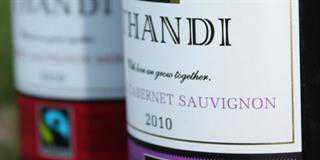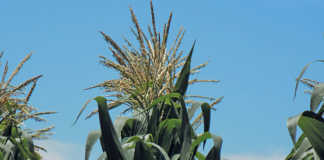Western Cape barley farmers in the southern parts of the province suffered widespread cropdamage due to heavy, late season rains and this would have resulted incatastrophic financial losses if the main barley buyer, SAB Maltings based in Caledon, didn’t announce adjustments to its strict quality criteria.
Grading concessions
Overberg had received between 75mm and 100mm rain during October, with the average rainfallbeing 35mm. Caledon based barley farmer and chairperson of the barley operating committee, RD Erasmus, said between 40% and 90% of all barley plantings were affected on most farms and the biggest threat was that extensive sprouting damage would occur on barley that had already been swathed to ready the crop for harvest.
“Once the barley starts sprouting it can no longer be used in the malting process and farmers will be forced to sell their barley as animal feed at an income loss of between R900/t and R1 500/t,” he said. But, Erasmus said,farmers might be able to sell more barley for malting than expected since SAB Maltings has made some concessions to its strict quality criteria to accommodate farmers who have been affected by the rain.
Overberg Agri’s Johan Lusse said the criteria were adjusted to allow1% sprouting damageinstead of 0% and this may be adjusted further to 3% in the coming weeks. Farmers were also allowed to take in malting barley with 10% cracked grains instead of 3%.
Counting losses
“Yields are looking very good, but the problem is quality. Producers can be very grateful for the concession made by buyers like SAB, because if the grading system was not adjusted, farmers would have taken a serious financial hit,” said Henk de Beer, general manager of agricultural industries at Sentraal-Suid Koöperasie Bpk (SSK).
By mid-November SSK had received 60% (33 000t) of canola out of a projected total intake for the season of 55 000t, and 65% (55 000t) of barley out of a projected total of 85 000t and 42% (40 000t) of wheat out of a projected total of 95 000t. De Beer said SSK was still confident that the targets would be met and it was even expecting a larger than estimated harvest.
He said some of the early wheat and canola did show sprouting damage but it was limited. However, a large component of the barley harvest would not have been accepted for malting under the
original grading system.
“About 10% of the canola that we have received thus far showed some damage, but no more 2% showed sprouting damage. “There was minimal damage on wheat and less than 5% of the wheat we have taken in was downgraded to feed grade due to sprouting damage. “But, if SAB did not make concessions in terms of its grading system, between 40% and 45% of the barley we have taken in so far would have had to be downgraded and used for feed,” he said.
Lusse said by mid-November, Overberg Agri received about 15% (22 000t) of the expected wheat harvest of 150 000t, 40% (60 000t) of the total expected barley harvest of 145 000t and 90% (18 000t) of the total expected canola harvest of 20 000t. “We have seen no significant rain damage on wheat or canola, but up to 90% of the barley we have taken in only passed the grading as malting barley because of the concessions made by SAB. Even with the concession, we expect that 5% of the total barley harvest will have to be sold as feed,” said Lusse.
Effect on beer quality
Gerhard Greeff, agricultural services manager at SAB Maltings, said it had decided to make concessions because its experience in malting local barley had been good over the last couple of years.“We believe that the risk presented by this crop can be managed if we share the risk effectively between the producer, co-ops and SAB.”
“At this stage it is difficult to give an exact percentage of how much of the barley intake from local producers would have been lost if concessions were not made, because the producers are still harvesting. A guestimate is that between 50% to 60% of the crop would have been lost,” said Greeff.
He said beer quality should not be affected by the concessions made. “There is always a risk when making concessions but we believe that the quality of beer will be the same but processing (malting and brewing) will need extra skill and time.” Piet Geldenhuys, a wheat producer from Heidelberg, suffered rain damage that affected 250ha of wheat, almost half his wheat crop for the year.
“Half of my crop will probably be downgraded and a lot of it might have to be sold as feed grade wheat, but I don’t know yet what the full extent of the losses will be. The wheat price drops by about R135/t for every grade adjustment. “In the case of feed grade wheat, the price will be four times (R540/t) lower than what it would have been if I harvested the wheat at the grade that I anticipated before the rain damage,” he said.
“I think at the end of the day the damage has not been as dramatic as we initially feared it might be. And while the grain harvest might have been affected negatively by the late, heavy rains, our pastures are looking very good. “It reminds me of something my father used to say; ‘Die reën maak sy eie skade reg’ (rain fixes the damage it causes).”












